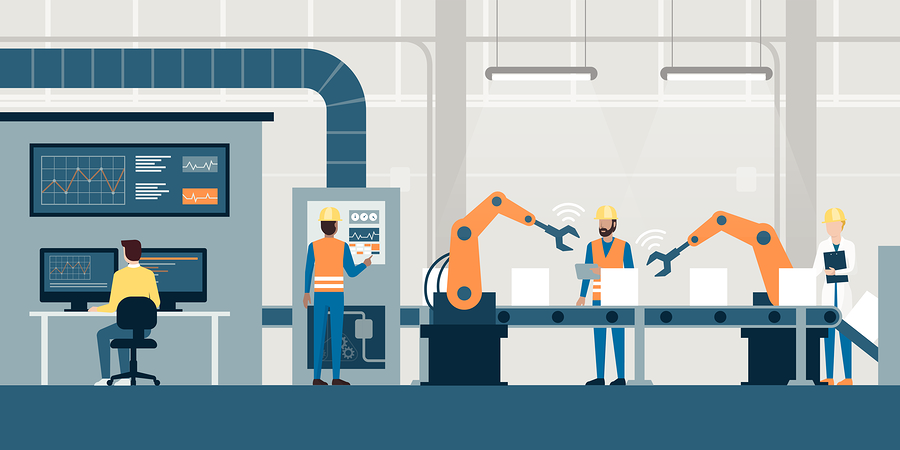The rise of automation within the manufacturing industry has meant a learning curve for many workers. Many once feared losing their jobs to machines that could perform their precise, repeatable tasks at a faster pace. While, at one time, the prospect scared many away from even considering a career in manufacturing, many of those same people are reconsidering.
Why? They’ve realized automation is actually an opportunity for growth in the manufacturing sector. It offers manufacturing hiring managers opportunities to shift workers into support roles in the facility: Roles many are finding more fulfilling than linework.
Taking the repetitive jobs and creating better ones
Factory automation is largely responsible for taking over jobs that are, in many ways, already automated. Simple assembly, packing, weighing, and labeling are all routine, monotonous tasks representing the easiest possible entry points into a workforce. They often offer little room for upward mobility because they offer almost no opportunities for hard workers to distinguish themselves.
As machines take these jobs, they open up an array of new support roles within the manufacturing environment. For example, robotics is still making inroads when it comes to highly variable tasks. More complex tasks that demand critical thinking and logic create a sense of fulfillment as opposed to repetitive tasks.
Likewise, robots themselves bring with them numerous needs within a factory. Installation techs, support and service professionals, calibration experts, and more all become important roles in keeping production lines running.
At its core, production automation raises the floor in a factory. As line jobs become replaced with robots, insightful workers fill auxiliary roles that can be more rewarding and lucrative. While the robot might take away a minimum wage packing and taping job, it’ll need someone to oversee its functions on a day-to-day basis.

The next generation of workers
The shift towards automation in factories has been occurring for the better part of a decade. But another shift has also been occurring at the same time: the rise of robotics education and affiliated STEM graduates. At the same time manufacturers have been automating, the next generation of factory workers have been positioning themselves for command over robotics.
This signals a paradigm shift in what we will soon consider to be a “factory job.” While once it involved standing at an assembly line and repeating the same task throughout an eight-hour shift, soon it will involve programming, calibrating, repairing, maintaining, and coordinating robots while continuing to work alongside other humans.
A win-win for the manufacturing industry
As manufacturers seek to drive down costs and increase productivity, automation is inevitable. The silver lining is the evolution of work that will likely follow. It’s important for the next generation of factory workers not to view automation as a threat to their jobs but rather the opportunity for better jobs. Being able to serve in a role that’s fulfilling and meaningful for better pay and opportunities than the traditional “factory job” could excite the next generation of skilled workers and drive them toward the industry.
